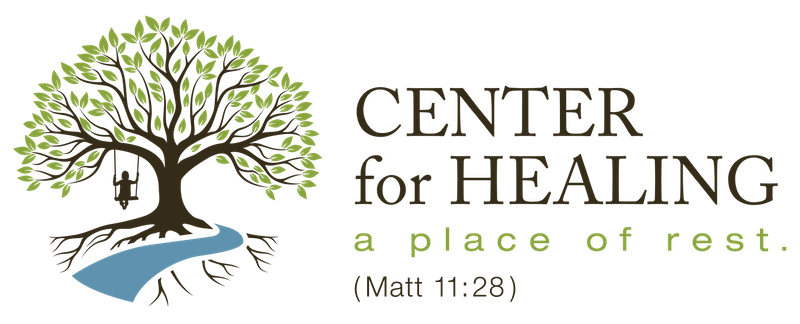
In 1943, American Psychologist Abraham Maslow released a paper called “A Theory of Human Motivation,” a groundbreaking work that exposed others to his thoughts about human needs.
Referred to as “Maslow’s hierarchy of needs,” his ideas acknowledged that innate to humanity is having needs that should be met. He categorized 5 stages, looking at the ways that humans seek to meet basic needs (like food, water, shelter, clothing), to more interpersonal needs (the need for friendships, intimacy), to more existential, meaning-focused needs in what he termed self-actualization.
Maslow saw these as more progressive in nature, meaning that we would strive to get our basic physiological and safety needs met prior to moving towards needs for love/belonging or self-esteem. I think there is certainly developmental truth in that. But along with many current psychologists/ researchers we might take it a step further, acknowledging that humans have interpersonal (read: attachment) needs at the same time as they have physiological needs, so needs are often concurrently expressed. I would agree with Maslow, however, that without the needs of an earlier stage being met, it can be difficult to understand the existence of other levels of need. For example, an individual who grew up without access to regular meals, shelter, or safety, may have a difficult time psychologically processing the need or goal of becoming self-actualized—free in his/ her skin with individual and interpersonal meaning and purpose in life.
Quite often in the counseling room, I work with clients to “name” their needs. So many people feel that it is bad or shameful to have a need and as a result, act out in strange ways to try to get needs met. Sometimes we start by just simplifying a situation so that someone can say: “I need _______” (to feel safe, to be seen, to be heard, to be able to eat without shame, to accept and appreciate my body and bodily functions, etc.).
Once we can name our needs, I share with clients that there are four things we can do when we have a need:
ASK
IGNORE
SACRIFICE
BULLY
Two things on the list are healthy and two, not so healthy. Do you know which ones are which? If you said that “asking” and “sacrificing” are healthy ways of operating when we have a need, you’re right! But perhaps some definitions would help unpack these a bit more.
ASK: When we have a need and can identify it, one of the healthiest things we can do is simply ask for that need to be met. The beauty of this is that we are liberated when we acknowledge we have needs that we are incapable of meeting by ourselves. To ask someone whether they can help us meet a need is extremely vulnerable, but when our needs are fulfilled by others, we are met in deeply impactful ways. The only thing to remember about asking is that an “ask” is only legitimate if the person we ask has freedom to say “yes” or “no.” Of course when someone tells us “no,” they can’t meet our needs, it can be scary and overwhelming, but the goal is that if someone tells us no, we assume that they are not the right resource, but we go back to the drawing board to consider other possible options or places to meet that need.
IGNORE: I meet more ignorers than I can count. Sometimes, because our needs are complicated or cause us shame or any number of other complicated thoughts, we just get very good at ignoring our needs. This is the person who can’t pay attention to the signals his/ her body is giving her, who doesn’t know that his/her emotions have important meaning, etc. Ignorers often stuff needs and then either explode externally (and struggle interpersonally) or internally (and struggle with physical and mental issues that happen when we bottle things up). Ignoring isn’t healthy! Move towards asking or, if intentional, to sacrificing.
SACRIFICE: I love the idea of sacrifice because in sacrifice, we acknowledge that our need is real, valid, and important. But sometimes our needs and other’s needs are just not mutually attainable. Sometimes, conflicting needs cannot be met at the same time. In this case, sometimes we can choose to sacrifice. When we do, we are consciously acknowledging that our need is good, but for the sake of another, we choose to defer our need. There is something empowering and liberating and glorious about this. (But remember…if you find that you are always the one sacrificing, you might actually be ignoring instead.)
BULLY: Some of us never learned that our needs could be met. In order to survive, we may have learned to “bully” others to get our needs met. Or perhaps we were extremely wounded or disappointed by another human. We may begin to bully them in order to keep them at at distance so that our needs our met and they cannot wound us again. Bullying can look a lot of different ways; it can be operating passive-aggressively, manipulatively, using anger to control or hijack others, demeaning others’ needs, shaming them when they have differences, etc. When we bully others we try to force them to meet our own needs. But in doing this, we lose the potential for the give-and-take of relationships. We operate, not in vulnerability that leads to intimacy, but with walls and self-protection.
As is probably evident, we all operate in all four of these categories at different times. But the reality is that regardless of how we operate when we have a need, we all have them. My encouragement today? Try to begin to name your needs. Once you have done that, consider how / where you might be able to ask for those needs to be met. As Henry Cloud, author of books like “Boundaries” and “Safe People” says: “You aren’t alive if you aren’t in need.” Very true Henry. Honor your needs today!
Peace,
Abbey Foard MA, LPC, NCC



